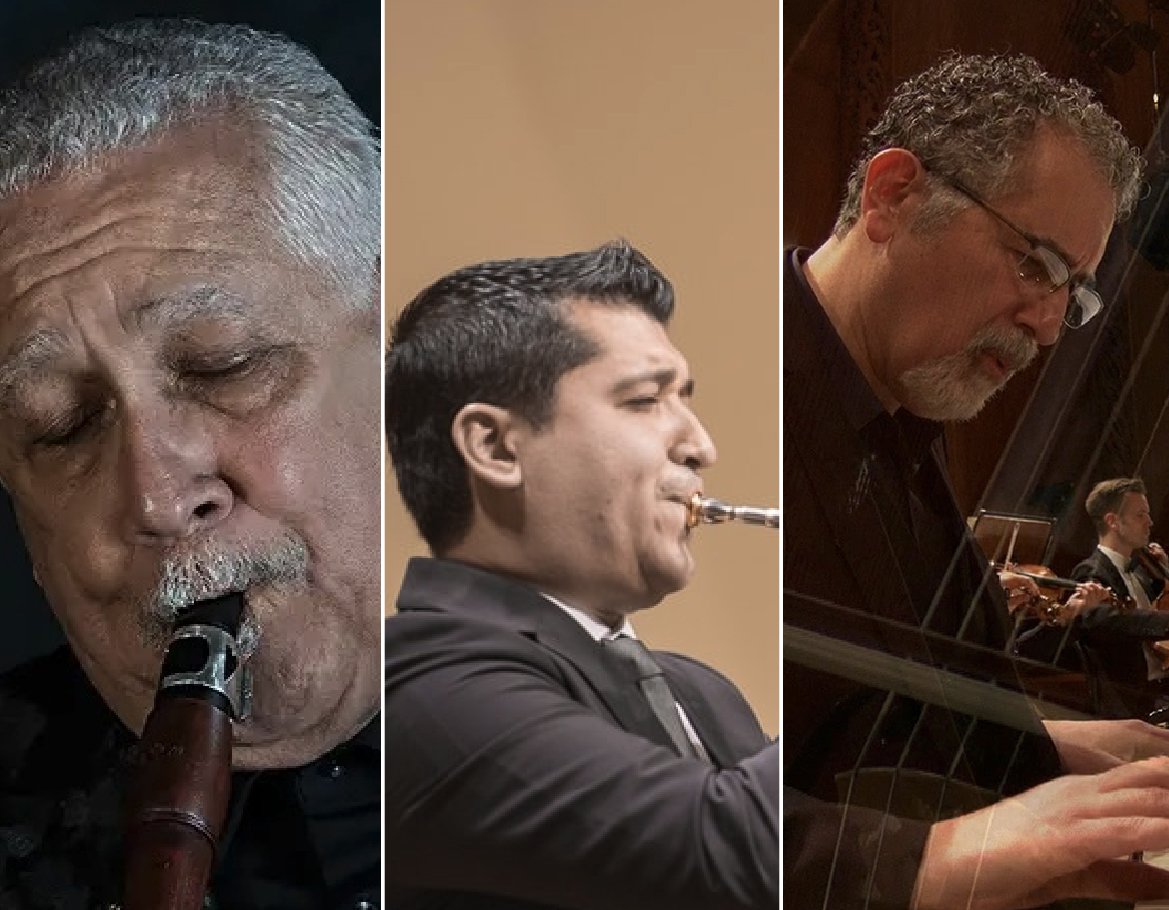Every other fall for nearly three decades, the Van Cliburn Concert Hall at TCU becomes a crossroads of Latin music. This year, the 14th Biennial Latin Music Festival brought together Cuban jazz, Venezuelan brass, and Argentine composition in a four-day celebration of some of the world’s most acclaimed musicians. Each festival is different, offering a fresh mix of Latin genres, composers, and performers for Fort Worth audiences to experience. And this year’s lineup was no exception.
Paquito D’Rivera — the Cuban-born clarinetist and saxophonist with sixteen Grammys — has been pushing boundaries in jazz and classical music for decades. Trumpeter Pacho Flores, a force of nature from Venezuela, is known for tones that soar and shimmer. At the same time, Argentinian pianist, arranger, and composer Daniel Freiberg moves as easily between a New York jazz club and a concert hall in Buenos Aires. At the center of it all is Dr. Germán Gutiérrez, director of orchestras at TCU and the festival’s founder, who has made it his mission since 1997 to showcase Latin music in North Texas.
After these legendary musicians spoke to a large classroom of students at TCU’s Van Cliburn Music Hall, we sat down and talked about the event in Dr. Gutiérrez’s office.
“We have a large Latino population here,” Gutiérrez said. “When I came to this in 1996, I said, ‘We need to give them Latin music…’ We not only play music with national elements, but we bring composers. There was one year that we brought like 25 composers from Latin America, from Puerto Rico, from Cuba, everywhere.”
This year’s festival unfolded very much as it did for the last 14 years, with Latin music taking center stage. Monday, Sept. 29, opened with a faculty recital, followed by a brass ensemble on Tuesday, Sept. 30. Wednesday, Oct. 1, was full of activity, beginning with a midday Q&A with students in the band room, moderated by Tim Walkins, and culminating in a jazz ensemble concert that evening. The festival reached its crescendo on Thursday, Oct. 2, when the TCU Symphony Orchestra took the stage with its guest artists in a program designed to close out the 2025 edition in grand style.
But it was the Q&A session that revealed why these legends were in attendance. Yes, they were here for the music, but they also came to give back. To mentor and help guide.
For Flores, mentoring feels like a full-circle moment.
“When I was fifteen, I was already teaching a student, the kid was eight… That’s how it goes — someone gives to you, and then you pass it on.”
Freiberg added, “The questions these students ask make you stop and think. You learn more giving than what you receive from others.”
D’Rivera, never one to miss a joke, likened it to paying musical taxes. “You have to give back something… it’s like taxes. You want to pay some taxes,” he said. “You feel better when you see that you were helpful to somebody.”
For Gutiérrez, those exchanges are the true heart of the festival. Yes, it’s about world-class concerts in one of the finest halls in Texas. But it’s also about the spark in a student’s eyes when they realize they’re sitting across from a living legend — someone who once stood exactly where they are now, horn or score in hand, wondering if they belonged.
That spark has kept the Latin Music Festival alive for over a decade, with more to come. In a city that knows a thing or two about big stages — this is Van Cliburn country, after all — the festival proves there’s room for other kinds of virtuosity too. The type that blends tradition and improvisation, that speaks Spanish, Portuguese, English, and jazz all at once, and that insists music is meant to be shared.
As D’Rivera put it, reflecting on the connection between teacher and student: “You have to know where you’re coming from to make the point… start to look back at what happened before you, to know where you’re going. Otherwise, you might end up in the same place without even knowing it.”
